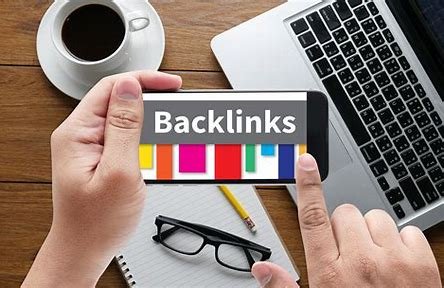Boosting your website’s Google ranking is crucial for increasing visibility and driving traffic. One powerful way to achieve this is through backlinks. But are you using them effectively to their full potential? In this blog post, we will explore the importance of backlinks and how they can significantly impact your site’s search engine optimization. Curious about how backlinks can help your SEO efforts? Check out Do backlinks to your website help with SEO and rank higher in Google? for more insights.
Key Takeaways:
- Backlinks are crucial for boosting website ranking: Backlinks act as a vote of confidence from other websites, helping to signal trust and credibility to search engines like Google.
- Quality over quantity: Focus on obtaining backlinks from authoritative and relevant websites in your niche, as quality backlinks hold more weight in improving your Google ranking.
- Diversify your backlink sources: Utilize a variety of tactics such as guest posting, influencer collaborations, and creating shareable content to attract a well-rounded backlink profile that can positively impact your website’s SEO.

Understanding Backlinks
Obviously, backlinks are crucial for improving your website’s Google ranking. But do you truly understand what backlinks are and how they work?
Definition of Backlinks and Their Significance
Understanding backlinks is essential for anyone looking to boost their website’s SEO. Backlinks are incoming links from one web page to another website. They are crucial because they serve as a signal to search engines that other websites find your content valuable enough to link to. In essence, backlinks are like votes of confidence in the eyes of search engines.
Backlinks are a critical component of search engine optimization (SEO) because they can significantly impact your website’s ranking on search engine results pages. The more high-quality backlinks you have from authoritative websites, the more credibility and authority your site will have in the eyes of search engines like Google.
Types of Backlinks and Their Impacts on SEO
Their types of backlinks play a crucial role in determining their impact on SEO. There are two main types of backlinks: dofollow and nofollow. Dofollow backlinks pass authority and SEO juice to the linked page, while nofollow links do not.
- Dofollow backlinks are highly valuable for SEO as they signal to search engines that your website is endorsed by another site. They can help improve your website’s ranking on search engine results pages. Assume that you focus on acquiring more dofollow backlinks to boost your SEO efforts.
- Nofollow backlinks, on the other hand, do not directly impact your site’s SEO. However, they can still drive traffic to your website and increase your online visibility. Assume that you strategically leverage nofollow backlinks from reputable sources to diversify your backlink profile.
Any backlink strategy should aim to acquire a healthy mix of both dofollow and nofollow backlinks. While dofollow links are more beneficial for SEO, a natural backlink profile with a mix of both types can appear more organic to search engines. Importantly, the information should be broken down into a table with 2 columns and 5 rows.
Techniques for Acquiring Quality Backlinks
Creating Share-Worthy Content
Any successful backlink strategy begins with creating share-worthy content that naturally attracts backlinks. By producing high-quality, valuable, and engaging content, you increase the likelihood that other websites will want to link back to your site. This could include informative articles, insightful infographics, entertaining videos, or original research that is relevant to your target audience.
For optimal results, focus on creating content that addresses a specific need or solves a problem for your audience. This not only enhances the chances of earning backlinks but also helps establish your website as a reputable source of information in your industry. Note, quality over quantity is key when it comes to creating share-worthy content.
Guest Blogging and Collaborations
Collaborations with other websites through guest blogging can significantly enhance your backlink profile. By contributing valuable content to authoritative sites within your niche, you not only showcase your expertise but also gain exposure to a new audience. This can lead to natural backlinks as readers of the guest post visit your website for more information.
Collaborations with industry influencers, brands, or complementary businesses can also be beneficial for acquiring quality backlinks. By partnering with reputable entities, you can leverage their existing audience and credibility to boost your own website’s authority in the eyes of search engines.
Guest Blogging and Collaborations: Guest blogging involves writing articles for other websites in your industry, while collaborations may include co-creating content, hosting webinars together, or participating in joint marketing campaigns. These strategies can help you tap into new audiences and establish valuable connections within your industry.
Optimization and Maintenance of Backlinks
Your website’s backlink profile plays a crucial role in determining its ranking on Google. It’s not just about the quantity of backlinks – quality matters just as much, if not more. In this chapter, we will examine into the optimization and maintenance of backlinks to ensure that you are making the most of this powerful SEO strategy.
Assessing the Quality of Backlinks
On the journey to improve your website’s ranking, it’s essential to evaluate the quality of the backlinks pointing to your site. Not all backlinks are created equal, and high-quality backlinks from authoritative and relevant websites can significantly boost your SEO efforts. Look for backlinks from websites with a good domain authority, relevant content, and a strong reputation in your industry. By focusing on acquiring quality backlinks, you can ensure that your website’s authority and credibility are enhanced in the eyes of search engines.
Regular Monitoring and Auditing of Your Backlink Profile
Your backlink profile is not a static entity; it requires regular monitoring and auditing to ensure its effectiveness in boosting your website’s Google ranking. By keeping a close eye on your backlinks, you can identify and disavow any spammy or toxic links that may be harming your SEO efforts. Conducting regular audits will also help you track the growth of your backlink profile and make necessary adjustments to your link building strategy.
It is crucial to remember that regular monitoring and auditing of your backlink profile are ongoing tasks that require dedication and attention to detail. By staying proactive in managing your backlinks, you can ensure that your website continues to climb the ranks on Google and drive organic traffic to your site.
Advanced Strategies for Boosting Rankings
For a comprehensive approach to boosting your website’s Google ranking, it’s essential to utilize advanced strategies that go beyond basic backlinking techniques. In this chapter, we will explore some advanced techniques that can help you achieve higher rankings and increase your online visibility.
Leveraging Competitor Backlink Analysis
For those looking to gain a competitive edge in their SEO efforts, leveraging competitor backlink analysis can provide valuable insights. By analyzing the backlink profiles of your competitors, you can identify potential link building opportunities that can help boost your own website’s authority and rankings. Tools like Ahrefs, Moz, and SEMrush can assist you in this process by providing detailed data on your competitors’ backlinks.
Furthermore, by understanding which websites are linking to your competitors but not to your site, you can strategically reach out to those sites and pitch your content or services, thereby expanding your backlink portfolio and improving your SEO performance.
Utilizing Social Media to Enhance Link Building
Any modern SEO strategy should include utilizing social media platforms as a means to enhance link building efforts. Social media platforms like Facebook, Twitter, LinkedIn, and Instagram provide valuable opportunities to share your content and attract backlinks from a diverse range of sources. By actively engaging with your audience on social media and promoting your content, you can increase the likelihood of your content being shared and linked to by others.
Strategies for utilizing social media to enhance link building include creating shareable content, participating in relevant conversations and groups, and collaborating with influencers in your industry to amplify your reach and attract more quality backlinks to your website.
Conclusion
Considering all points discussed in this article, it is evident that backlinks play a crucial role in boosting your website’s Google ranking. By utilizing backlinks effectively, you can improve your site’s credibility, authority, and visibility in search engine results. It is essential to focus on quality over quantity, building relevant and authoritative backlinks that contribute to your site’s overall SEO strategy. By implementing a well-thought-out backlinking strategy, you can enhance your website’s online presence and drive more organic traffic, ultimately leading to improved search engine rankings.
FAQ
Q: What are backlinks and why are they important for boosting my website’s Google ranking?
A: Backlinks are links from one website to another. They are important for SEO because search engines like Google see backlinks as a vote of confidence in your content. The more high-quality backlinks your website has, the more authority it is perceived to have, which can help improve your website’s Google ranking.
Q: How can I effectively utilize backlinks to boost my website’s Google ranking?
A: To effectively utilize backlinks, focus on getting backlinks from high-authority websites in your industry. Create valuable content that other websites will want to link to. You can also reach out to websites and ask them to consider linking to your content. Regularly monitor your backlink profile and disavow any spammy or low-quality backlinks to ensure they don’t harm your ranking.
Q: What are some common mistakes to avoid when building backlinks to improve my website’s Google ranking?
A: Some common mistakes to avoid when building backlinks include buying backlinks, getting backlinks from irrelevant or low-quality websites, using link farms or link schemes, and over-optimizing anchor text. These practices can lead to penalties from search engines and harm your website’s ranking. Focus on natural link-building strategies and always prioritize quality over quantity when it comes to backlinks.


Leave a Reply